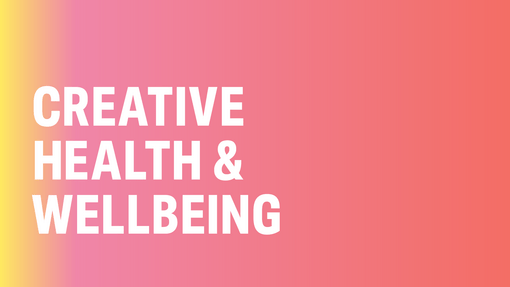Getting to grips with social prescribing
Posted by:

If you work in culture and creativity – or another community-facing sector like heritage, sport or the natural environment – you’ve probably started to hear more about social prescribing over the past 18 months. You may even have seen it referenced in Let’s Create, our recently published strategy for 2020-30.
It’s great that awareness is expanding, but it’s important that people feel confident to navigate the opportunities (and challenges) that social prescribing can present for the arts, museums and libraries.
As the National Academy for Social Prescribing launches its first programmes today – the first ever Social Prescribing Day – we’re diving in to tackle that challenge head-on.
What is social prescribing?
First off, what do we mean by social prescribing? It’s a term often used in relation to the work of GPs, and can be broadly defined as the referral of patients to social activities, instead of or in addition to more conventional forms of medicine.
The impetus for social prescribing comes from the evidence that one in five people visiting a GP does so for reasons that aren’t fundamentally medical - including loneliness or debt. Up to another one in five people live with a condition or symptoms where medicine isn’t the sole, or even the best, solution.

The work done so far
Over the last few years, there’s been some brilliant work and research done by arts and cultural organisations in relation to social prescribing.
Artlift in Gloucestershire has been running participatory arts sessions in GP surgeries and community spaces across the county. As a result of the programme, there’s been fewer visits to GPs, outpatient appointments and hospital admissions. Each session costs £33.48 per patient but delivered a cost saving of £471 per patient.
Meanwhile, Reading Well from the Reading Agency has delivered a national books-on-prescription programme, finding that 83% of participants experiencing mental ill health felt better able to understand their conditions, and 68% felt that their symptoms had improved. The programme is available across over 98% of public libraries in England.
The National Academy for Social Prescribing
With this ever-building evidence-base in mind, enter the National Academy for Social Prescribing – a new, independent charity that will lead the development of social prescribing across England. It was officially launched in October 2019, and we’ve been a founding partner from first discussions, taking part in the management board that set up the Academy, and pledging £250,000 towards its work.
A core group of trustees have been established, chaired by Helen Stokes-Lampard (the outgoing President of the Royal College of GPs) and Baroness Tanni Grey-Thompson. Excitingly, the Academy will be physically hosted by the Southbank Centre.
Today brings further announcements, including:
- a £1 million Social Prescribing Development Fund, to be launched in the summer, and which we have been a partner in the development of;
- a Social Prescribing Partners Programme that will see thousands of organisations connected with common purpose;
- and an Academic Partners Programme fund to develop the evidence base and identify the resources currently available for social prescribing coming soon, with £500,000 worth of research grants available.

Testing, testing…
In addition to our work as part of the National Academy for Social Prescribing, we’re also launching two social prescribing prototype partnerships, taking place in London and Calderdale.
We’ve teamed up with the Greater London Authority and the Healthy London partnership to co-invest £60,000 to initiate social prescribing activities in both Southwark and Merton, with the learning intended to inform the wider roll-out of social prescribing across the capital.
Until 5pm on Monday 16 March there are still opportunities for arts organisations, museums and libraries to propose activities to be funded.
In West Yorkshire, we’re partnering with Calderdale Clinical Commissioning Group, Calderdale Council, the South West Yorkshire Partnership NHS Foundation Trust, and the North Halifax Primary Care Network to bring together a cross-borough network for arts and health, and also to commission new activities.
CCG Chief Officer Dr Matt Walsh introduces the work and the programme is currently recruiting an Arts and Health Programme Manager, open for applications until Wednesday 18 March.
If you’d like any more information on the National Academy for Social Prescribing, the London or Calderdale pilot schemes, or social prescribing more generally, contact our team.













